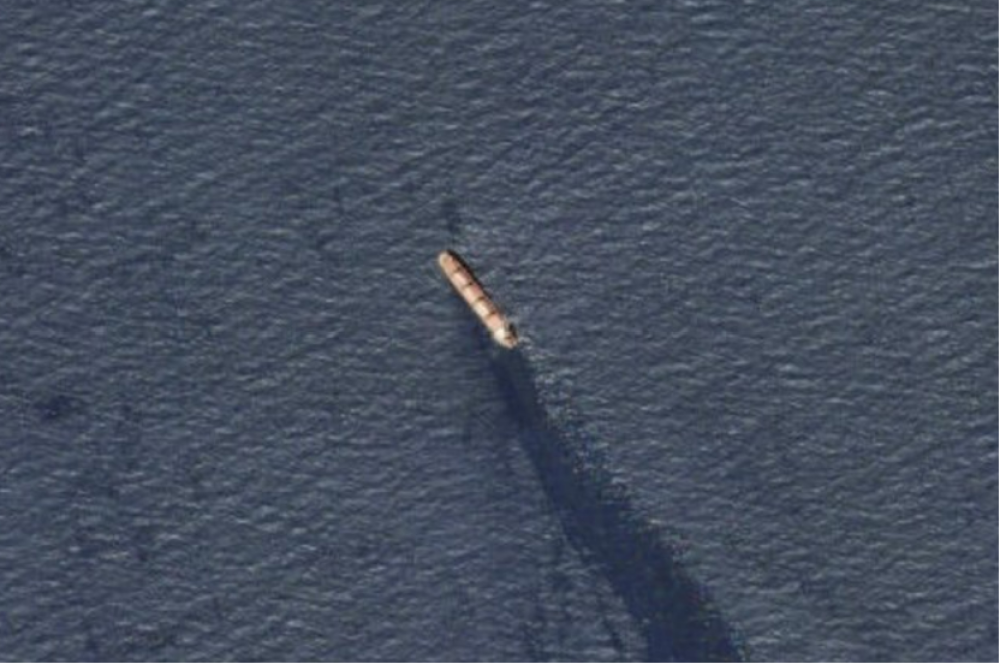‘Environmental disaster’: Yemeni govt demands help to secure Houthi-hit ship


Yemen’s internationally recognized government has requested international assistance to control an oil spill and potential chemical leak in the Red Sea caused by a Houthi strike on a cargo ship.
US Central Command, in a statement on Friday, said that a fuel leak from Rubymar — a vessel struck last week by a Houthi missile and abandoned by its crew — had created an 18-mile-long oil slick in the Red Sea.
The 41,000 tons of fertilizer on board the Lebanese-operated, UK-owned and Belize-flagged vessel also risks spilling into the sea and causing an environmental disaster, the statement added.
SABA, Yemen’s state news agency, said Prime Minister Ahmed Awad bin Mubarak had launched an emergency committee, urging other countries and environmental organizations to help prevent ecological damage to the Red Sea.
The Yemeni government urged the international community to act quickly and prevent the ship’s “large amount” of fuel and ammonia from leaking into the sea, adding that Rubymar was struck and abandoned south of the Hanish Islands.
In Sanaa, the Houthis blamed the Rubymar incident on the US and UK, accusing targeted vessels of disregarding warnings and violating the militia’s embargo on Israel.
“The purpose of our military actions is to modify the route of Israeli ships, not to capture, divert or sink them; nonetheless, America’s and Britain’s insistence on breaching Israel’s partial embargo is what prompted this escalation,” Houthi leader Mohammed Al-Bukhaiti said on X.
Since November, the Houthis have seized a commercial ship and launched hundreds of drones and missiles against commercial and naval vessels in the Red Sea, Bab Al-Mandab and the Gulf of Aden, while deterring Israel-linked ships from traversing the Red Sea.
The militia claims that its campaign intends to force Israel into lifting its siege on Gaza.
The Houthi Red Sea assaults have spurred the US to organize an alliance of countries to protect the Red Sea and unleash hundreds of airstrikes on Houthi-controlled areas of Yemen.
On Saturday, CENTCOM said that its forces had destroyed seven Houthi mobile anti-ship cruise missiles that were poised to be launched from Yemen at US Navy and foreign commercial ships.
Despite heavy bombardment by the US and UK, the Houthis have pledged to continue assaulting ships in the Red Sea unless Israel permits humanitarian supplies into Gaza.
A group of Yemen specialists have urged the US to supply military aid to the Yemeni government in an effort to undermine the Houthi’s campaign in the Red Sea.
In a joint piece for the American Enterprise Institute, a Washington-based think tank, Nadwa Al-Dawsari, Casey Coombs, Ibrahim Jalal, Kenneth M. Pollack, Baraa Shiban and Katherine Zimmerman questioned the utility of US and UK airstrikes in ending the Houthi Red Sea campaign.
Though the strikes have reduced the frequency and intensity of Houthi attacks, the US must arm and train Yemeni government troops to win against the militia, they said.
“The US should begin fully supporting the government it recognizes in Yemen and providing it with the necessary means to win against the Houthis,” the experts said, adding: “Weakening the Houthis within the context of the civil war is the only way to prevent them from further consolidating their position as the power broker in Yemen and projecting more power abroad, including in the maritime domain.
“And only when they are under direct threat and in a losing position will the Houthis — and perhaps the Iranians — rethink their current behavior.”

Taiz -- A child and another man were killed, while nine others including a young girl were injured on Thursday, December 18, after an explosive dev…

NewYork -- United Nations Secretary-General António Guterres on Wednesday strongly condemned the continued arbitrary detention of UN personn…

New York — United Nations Secretary-General António Guterres told the Security Council that the operating environment in areas under t…